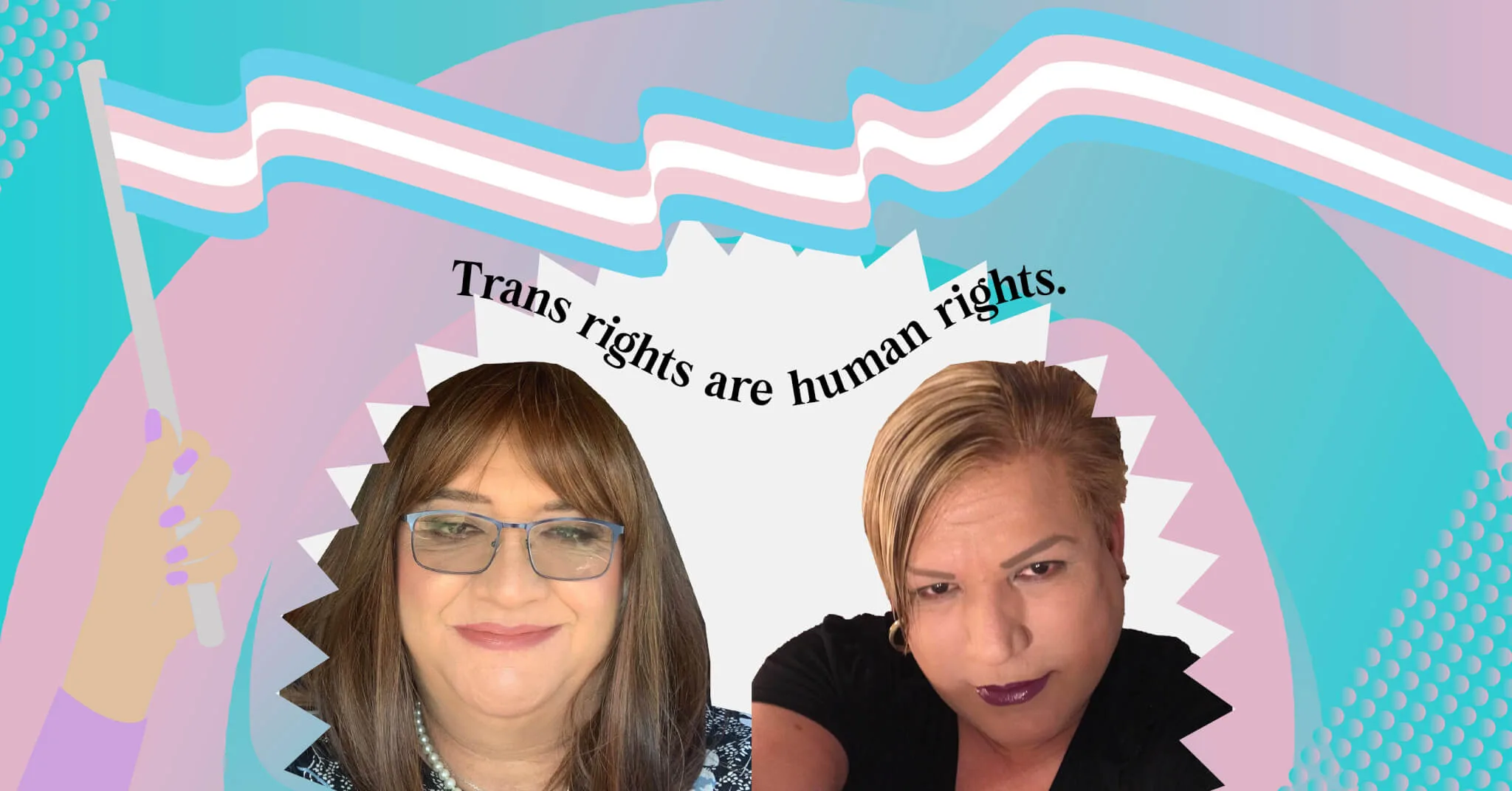
Image via Rebecca Russ
After the GOP-controlled Florida House voted to ban transgender women from playing girls’ or women’s school sports, activists in the state and across the country rev up their efforts to pass the Equality Act.
It can be a momentous decision for a son or daughter to go before a parent and reveal that they are transgender, a person whose sense of personal identity and gender does not correspond with their assigned sex at birth. How will the parents react to this news? Will they embrace or reject their child?
Samantha Montemayor knows this feeling too well. And yet, when she finally opened up to her mother, she was surprised by her mother’s own revelation.
“When I told my mother that I was a trans woman, she said, ‘I always knew, since you were a child,’” Montemayor, who works with Valley AIDS Council as a Risk Reduction Specialist and is secretary of the board of directors of GENTex, an organization for trans and nonbinary children in Texas, told The Americano.
“I then asked her why she didn’t tell me before, so that I could have been happy earlier, and she replied, ‘I could not tell you what to do. That was your decision to make.’”
RELATED: WATCH: 4 Groundbreaking Iberoamerican LGBTQ+ Icons You Need to Know
This is exactly what Montemayor is fighting for today: the right of every human being to make the decision to be who they are. To be, she said, “finally free.”
Hurdles Persist
But despite the progress of the transgender movement in the last decade, trans people continue to face flagrant discrimination in health, employment, and housing.
In fact, trans people of color often face worse health and economic outcomes as they face entrenched systems of oppression. And they are more prone to be victims of violence and hate crimes.
“Last year I lost friends [to violence], people I knew, and it hurts me,” Montemayor said, visibly moved. “Every day I ask myself, what number do I have to become before you can take action to stop this death?’’
With Justice for All?
In more than half of US states, including Florida, there are no explicit statewide laws protecting people from discrimination on the basis of sexual orientation or gender identity in employment, housing, and public accommodations.
“I’ve faced employment and housing discrimination for being a trans Latina woman,” Montemayor said, adding that “there is the belief that the only jobs a trans woman can hold are cosmetologist, hairdresser, and sex worker.”
“But in fact we can be doctors, teachers, lawyers… We are everywhere,” Andrea Montanez, Qlatinx ambassador, co chair at Advocacy Committee for Peer Support Space, and Captain Equality Florida, told The Americano.
RELATED: Florida Still Has a Ban on Same-Sex Marriage in its Statutes. Michele Rayner Wants to Fix That.
Florida Votes
On Wednesday, the GOP-controlled Florida House voted to ban transgender women from playing girls’ or women’s school sports, with supporters of the Fairness in Women’s Sports Act (HB 1475) claiming it is needed to protect female athletes from unfair competition against transgender students who were assigned male sex at birth.
“I don’t care how many times you tell yourself this is about women’s sports,” Rep. Anna Eskamani (D-Orlando) said before the vote. “The bill was not about athletics, but another avenue to attack the rights of trans people.”
Also this year Florida introduced a bill, the Vulnerable Child Protection Act (HB 935) that criminalizes transgender surgical procedures and medical treatments for kids, despite the fact that these measures raise the risk of mental health issues among transgender youth already prone to anxiety, depression and suicidal thoughts.
The Fight for Equality
The Equality Act is a landmark piece of legislation that would expand federal civil rights laws to protect LGBTQ people from discrimination in employment, housing, credit, jury service, and federally funded programs, such as those for health and education, as well as public places and spaces.
“As an activist, I’ll always raise my voice to help those that need help,” Montemayor said. That is why she is fighting for passage of the Equality Act, “to protect those who don’t have a voice or who don’t use their voice to help themselves.”
The landmark legislation received its first hearing in the Senate Wednesday, more than five years since its inception and after recent passage in the House. With Democrats controlling all of the levers of federal power, supporters of the bill are hopeful of their chances of success.
RELATED: What the Democrats’ Ban on Gender-Specific Pronouns Really Means
According to a 2020 survey from the nonpartisan Public Religion Research Institute, more than 80% of Americans, including a majority in all 50 states, support LGBTQ nondiscrimination protections, but still the bill could face opposition. The Judiciary Committee proceeding revealed stark battle lines between Democrats and conservatives, signaling a struggle for the bill to get the necessary 10 Republicans to pass it in the Senate.
Montemayor, however, remains undaunted by any setbacks. A tireless worker for human rights, she is committed to the fight for equality and remains convinced that “Biden’s government is doing everything possible to pass the Equality Act. I really believe things will change in 2021.”
Politics

Biden administration bans noncompete clauses for workers
The Federal Trade Commission (FTC) voted on Tuesday to ban noncompete agreements—those pesky clauses that employers often force their workers to...



Video: Debbie Mucarsel-Powell: The Six-Week Abortion Ban Is An Attack on Democracy
Local News



Biden administration bans noncompete clauses for workers
The Federal Trade Commission (FTC) voted on Tuesday to ban noncompete agreements—those pesky clauses that employers often force their workers to...








